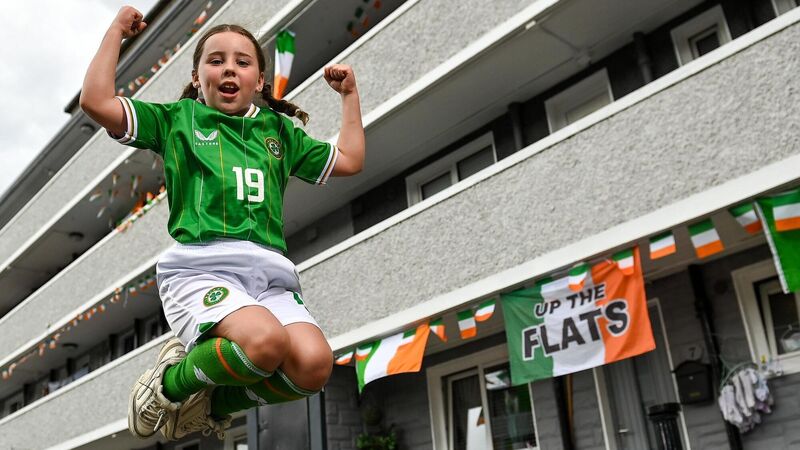Irish Examiner view: Nation gets behind Republic of Ireland at the Women's World Cup

Eight-year-old Leá O'Neill, whose cousin is Republic of Ireland player Abbie Larkin, will be watching as we make our Fifa Women's World Cup debut against Australia. Picture: David Fitzgerald/Sportsfile
The Ireland Women’s National Team will make history when they take the field against Australia in their opening Fifa Women's World Cup fixture at 11am Irish time on Thursday.
The team has captured the attention of the country, offering a welcome diversion from the grim headlines and front pages of recent times.

















